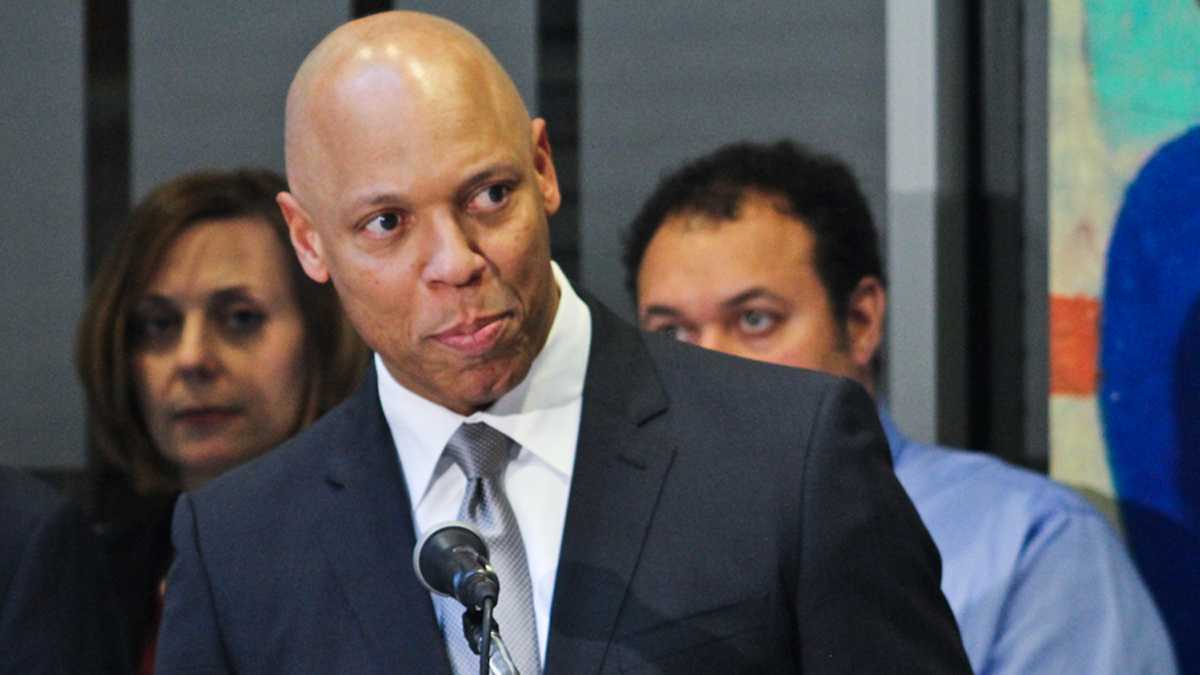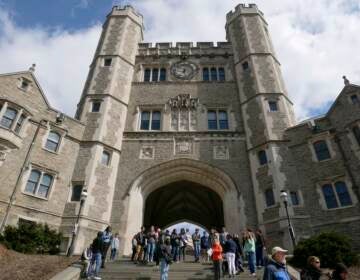Moody’s: Philly schools are fiscally stable, if not fiscally sound

Philadelphia School District Superintendent says district officials have “made concerted efforts to achieve and present a stabilized budget and long-term fiscal plan
The financial picture for Philly’s school system isn’t getting any worse — even if it is already relatively bleak.
That was the message sent Thursday by Moody’s Investment Services, which upgraded the School District of Philadelphia’s outlook from negative to stable. It is the first uptick in the school system’s financial position since 2010, according to the district.
In a statement that rationalized the upgrade, Moody’s cited new revenues from the city as well as a balanced district budget. Unlike past years — when the district faced a rolling series of shortages — Philly schools began the 2016-17 school year with a bit of extra cash on hand.
“Some of that financial pressure has been abated in the near term, so we’ve revised their outlook to stable,” said Jennifer Dierksen, Moody’s lead analyst for the Philly school district. “While we did do that, we do recognize that they do have some additional challenges going forward.”
Those challenges include rising charter and pension costs, according to Dierksen. Moody’s is also squeamish about the district’s inability to raise its own tax revenue.
For those reasons, Moody’s did not upgrade the district’s actual bond rating. The district still has a Ba3 underlying and A2 enhanced rating. Moody’s considers Ba3 bonds below investment grade. Colloquially, that’s what’s often called a “junk-bond” rating.
And so while Moody’s no longer expects the district’s financial situation to further deteriorate, it does not believe the math has gotten any better for Philly schools. Moody’s sees Philadelphia as one of the least financially sound urban school districts, behind only Chicago and Detroit.
Still, the Moody’s shift is at least one sign that the district is no longer in the throes of a financial crisis.
“We have made concerted efforts to achieve and present a stabilized budget and long-term fiscal plan, and it is important that independent reviewers like Moody’s are recognizing our efforts,” said William Hite, district superintendent.
In a release, Moody’s said the following:
“The stable outlook on the underlying rating reflects the district’s recently improved financial position that is expected to increase again in fiscal 2016 and remain stable in fiscal 2017. While draws on reserves are projected in the out-years of the district’s five-year plan, we believe these projections are somewhat conservative, as the district has historically outperformed budgeted figures.”
Moody’s forecasts generally hold for one to two years, according to a representative of the firm, before they are revised again.
On Friday, Fitch Ratings, Inc. — a rival credit-rating agency — also moved the district’s outlook from negative to stable.
The district itself has acknowledged the current budget respite is no guarantee of future stability. At a budget talk in May, Uri Monson, the district’s chief financial officer, said Philadelphia schools could be in the red again by 2019 without additional revenues. Like Moody’s, Monson pointed to pension and charter obligations as key concerns.
WHYY is your source for fact-based, in-depth journalism and information. As a nonprofit organization, we rely on financial support from readers like you. Please give today.





